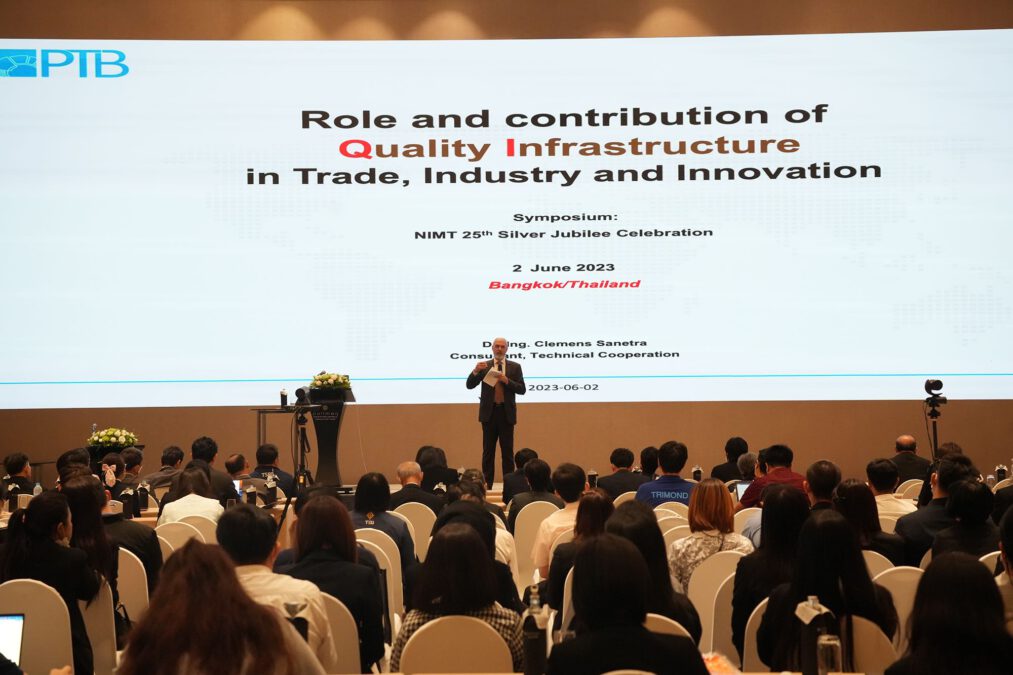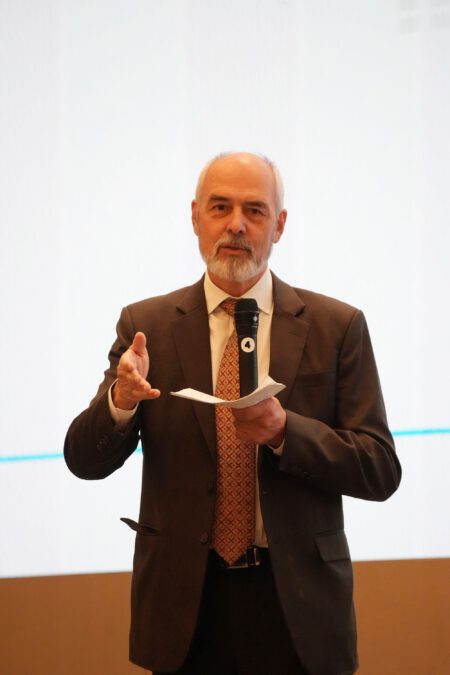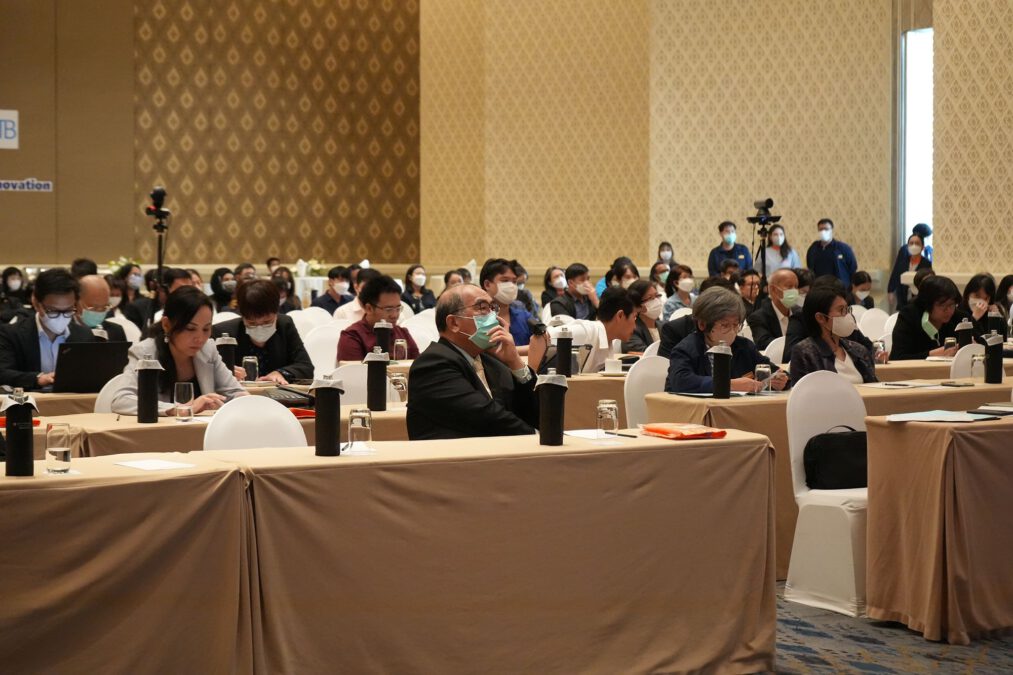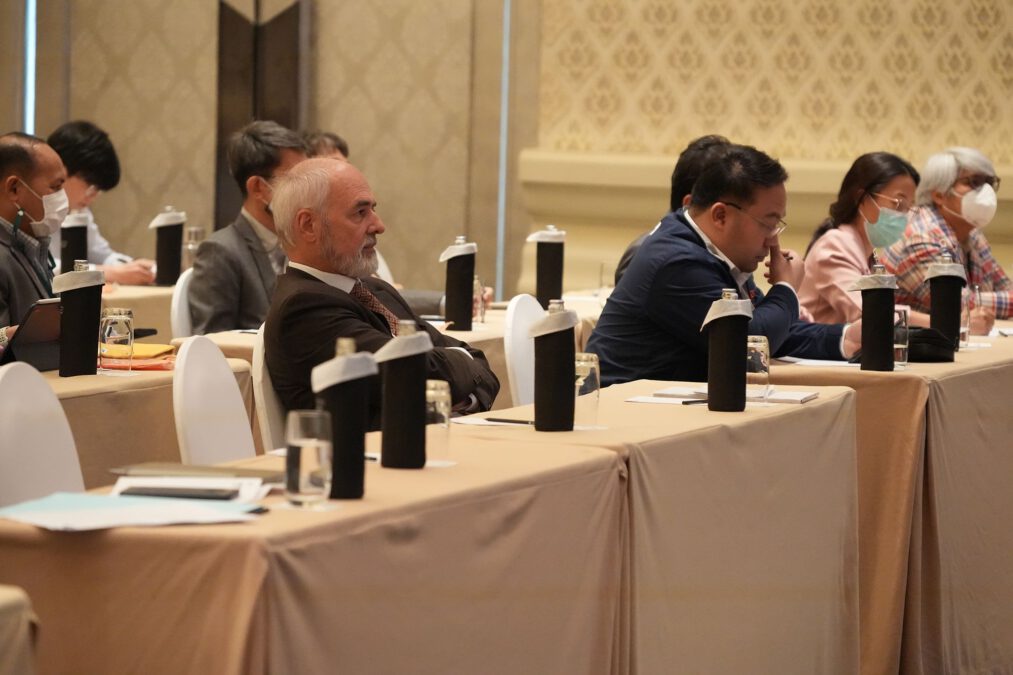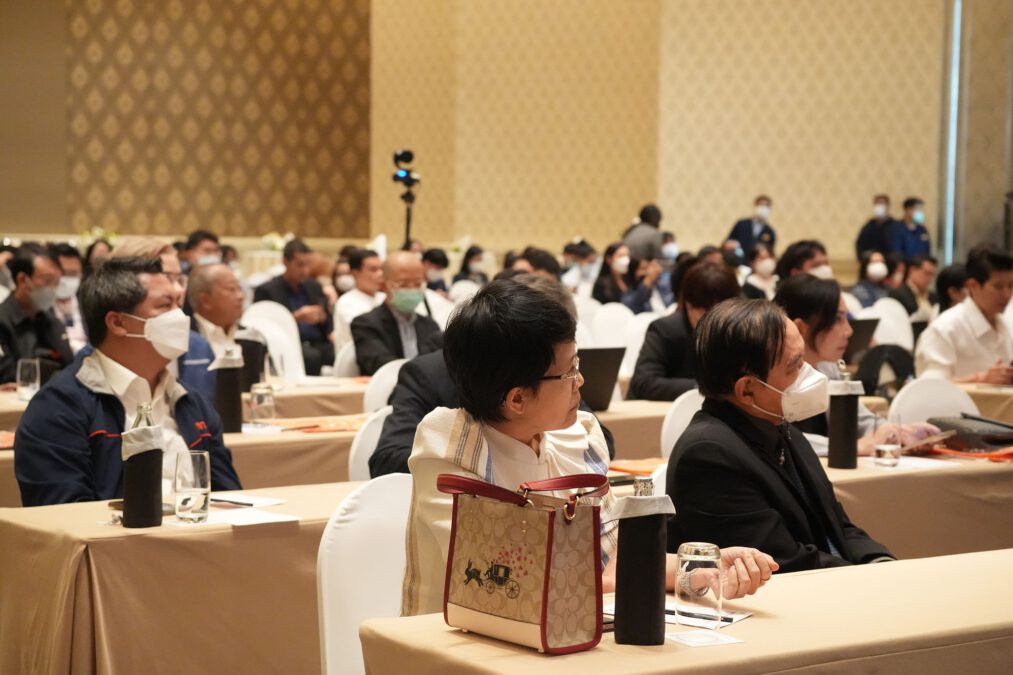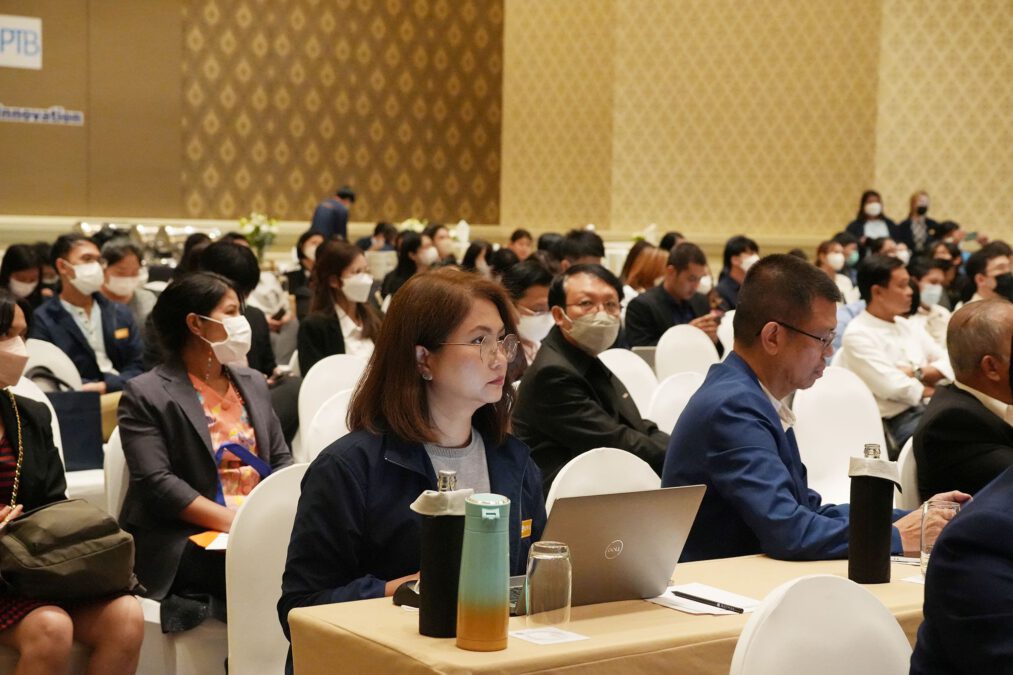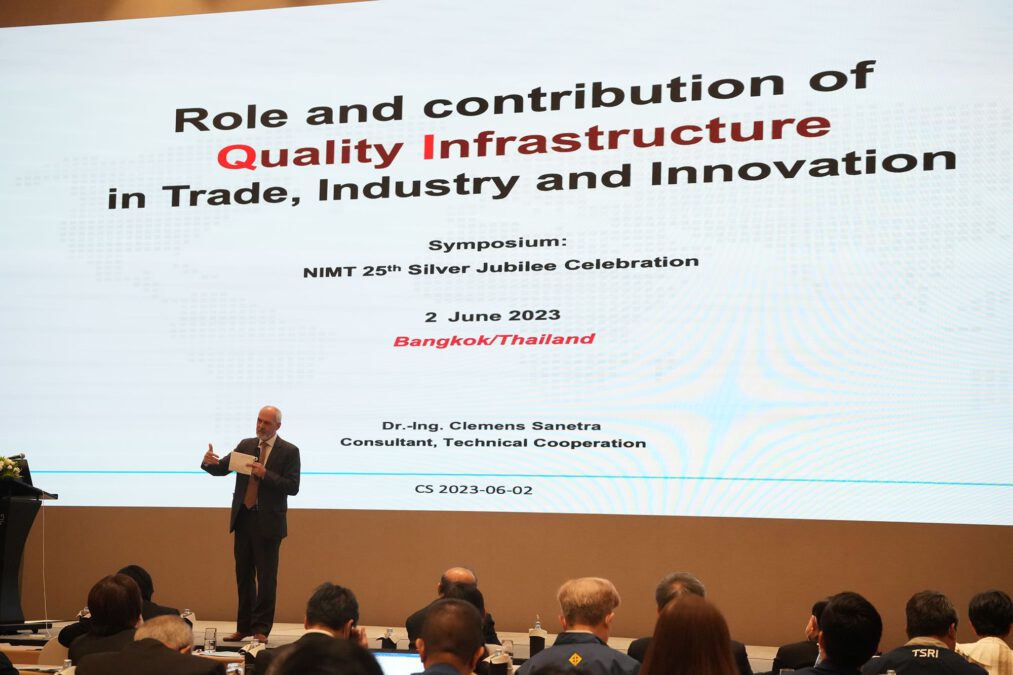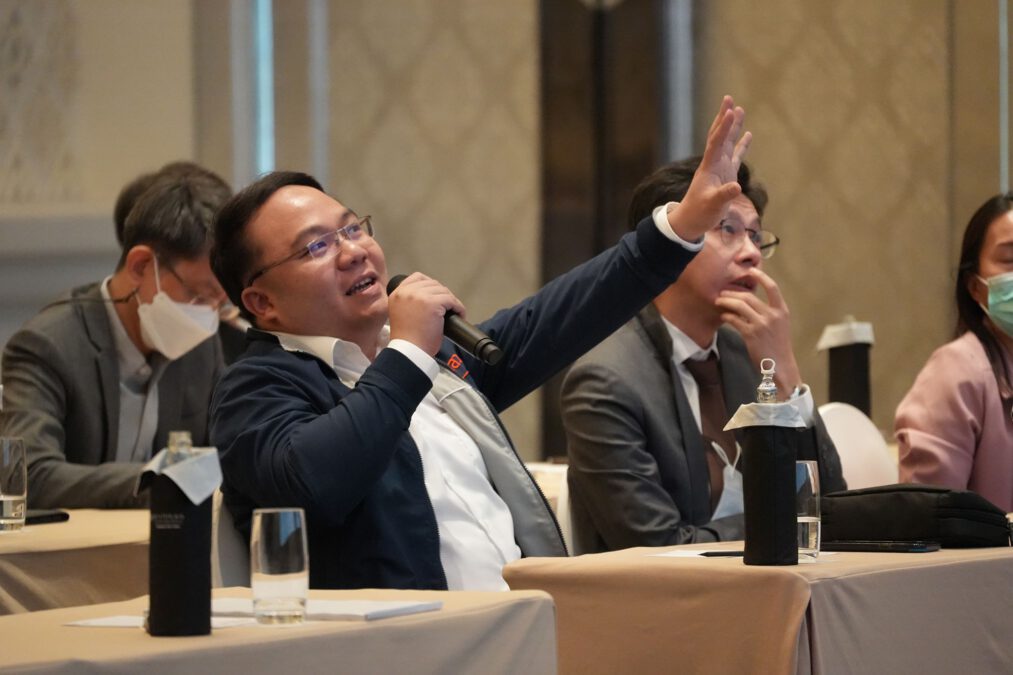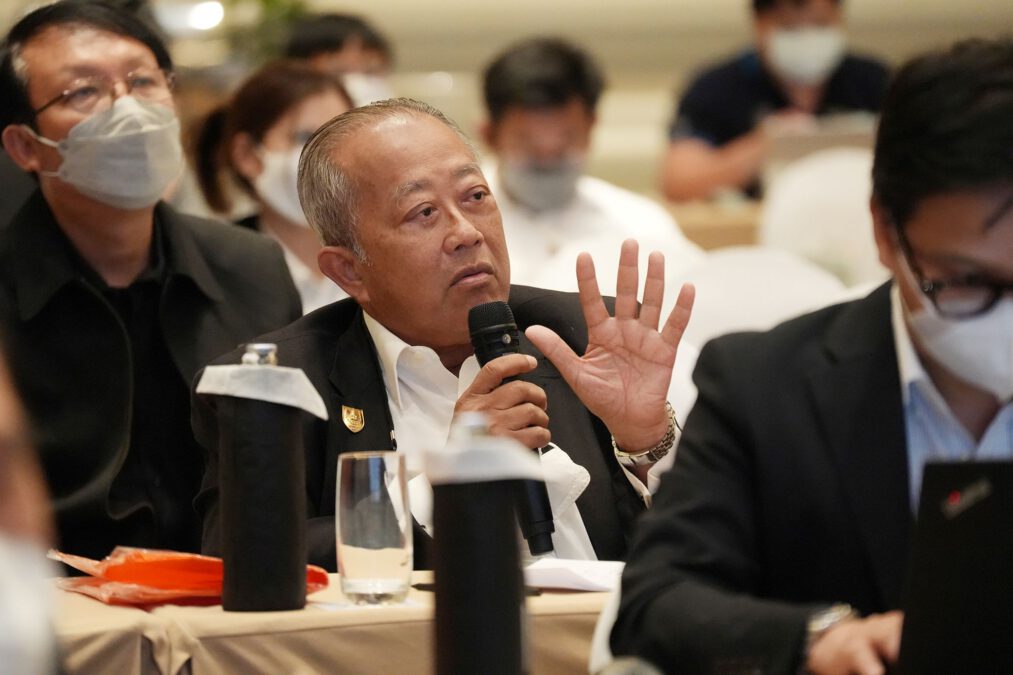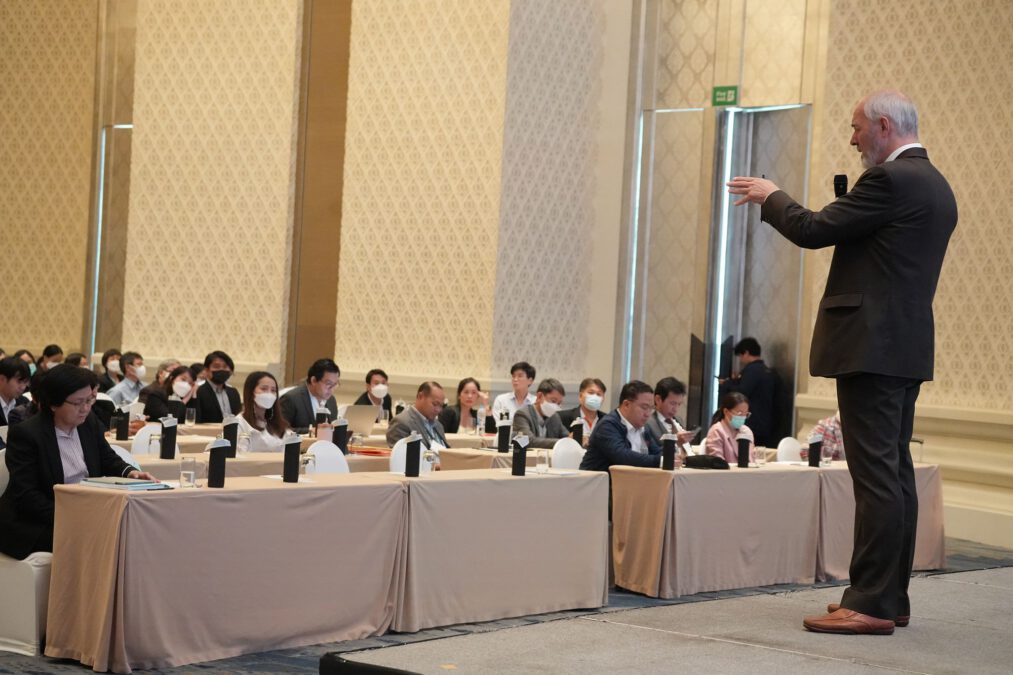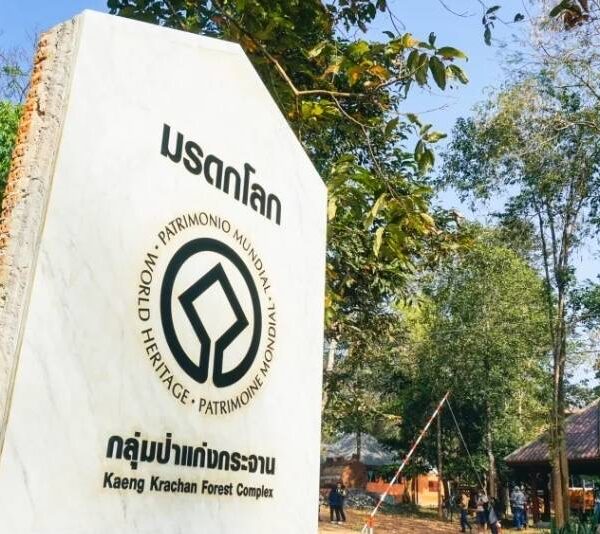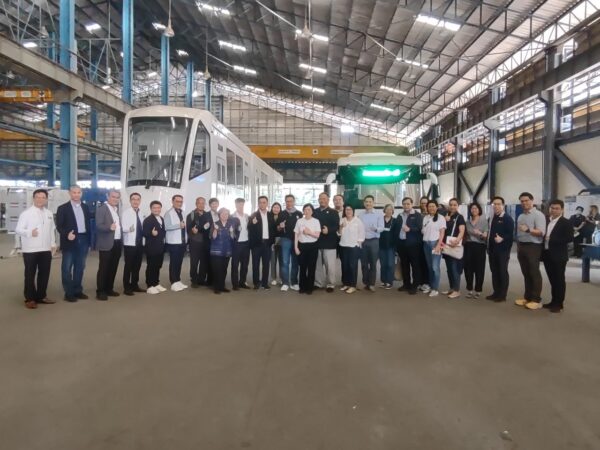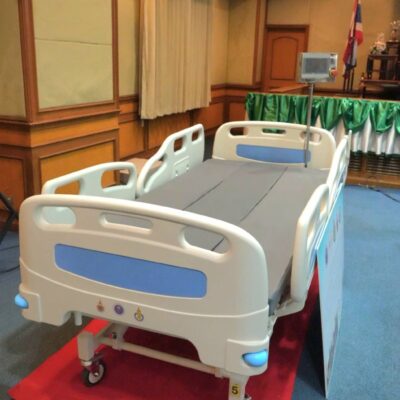
DR.-ING. CLEMENS SANETRA, an expert in the Quality Infrastructure (QI) on a global level, who laid the foundation for the National Quality Infrastructure (NQI) in Thailand, was given the honor to speak on the topic of “ROLE & CONTRIBUTION OF QI IN TRADE, INDUSTRY, AND INNOVATION” during the PMUC SPECIAL TALK event on Friday, June 2, 2023, at the PULLMAN KING POWER Hotel (Water Garden). This event was organized by the Program Management Unit for Competitiveness (PMUC) in collaboration with the National Institute of Metrology (NIM).
Dr.-Ing. Clemens Sanetra, who has been instrumental in establishing Thailand’s National Quality Infrastructure (NQI) over the past 20 years, explained that NQI is a system composed of both public and private organizations with common policies, regulations, and oversight. Within the NQI system, organizations collaborate in five key areas:
- Metrology: The science of measurement, aiming to ensure accuracy and consistency in measurements and their results, enabling comparisons and practical applications.
- Standardization: The process of creating documents specifying requirements, criteria, or guidelines for uniformity in various operations, whether in product manufacturing or procurement.
- Accreditation: The evaluation process for Conformity Assessment Bodies (CABs) based on standards.
- Conformity Assessment: Procedures to verify whether products, services, or systems meet the specified standards, including testing, certification, and inspection.
- Market Surveillance: Ensuring that products and services entering the market comply with legal requirements, ensuring consumer safety, fair trade, and public benefits.
Dr. Sanetra emphasized that the role of NQI has become increasingly complex due to intense market competition and the evolving needs and expectations of consumers. Additionally, private sector advancements in science, technology, and innovation contribute to this complexity.
Nonetheless, safeguarding consumers, society, the environment, market transparency, and fair trade is crucial and poses a challenge for the Quality Infrastructure and Standards (QI) system, which must operate independently and impartially at all times. The primary focus lies on three vital components:
- Protection purposes (state regulation): Public-sector requirements aimed at protecting consumers and other interests.
- Market demand (buyer’s requirements): The need for products in the market to meet basic standards, such as labels or safety.
- Innovations (entrepreneur’s creativity): Entrepreneur-driven innovations, beyond pricing, that enable businesses to outperform their competitors in terms of quality and differentiation through innovation.
In the market, products must meet basic standards as per regulations, such as labels and safety, and then they compete based on quality and innovation, surpassing price as a primary factor.
Dr. Sanetra also discussed the significant role of the public sector in developing the National Quality Infrastructure, which plays a crucial role in the following.
- Regulating Authorities (Regulator), which are responsible for setting requirements to protect and certify all goods and services, including market supervision. Buyers, especially the state as the largest buyer in the economy, under the regulations and requirements of the Public Procurement Act, can improve and develop NQI requirements beyond the original standards through procurement, stimulating higher NQI standards.
- Policy Makers play a role for the government in promoting a “quality culture,” educating consumers, strengthening consumer rights, and market transparency. When consumers demand more, businesses must respond and focus on developing products that meet national quality infrastructure standards.
- Innovation Drivers are a government role for driving various initiatives, such as innovation promotion programs based on quality infrastructure, research and development utilizing quality infrastructure for new technologies, and the revitalization of the quality infrastructure system to support smart cities, renewable energy, and electric-drive systems.
- Facilitator is a government role in bridging stakeholders from both the private and public sectors, academia, and consumers to achieve centralized control, flexibility, and efficiency in production, reduce production losses, and stimulate creativity in the economy.
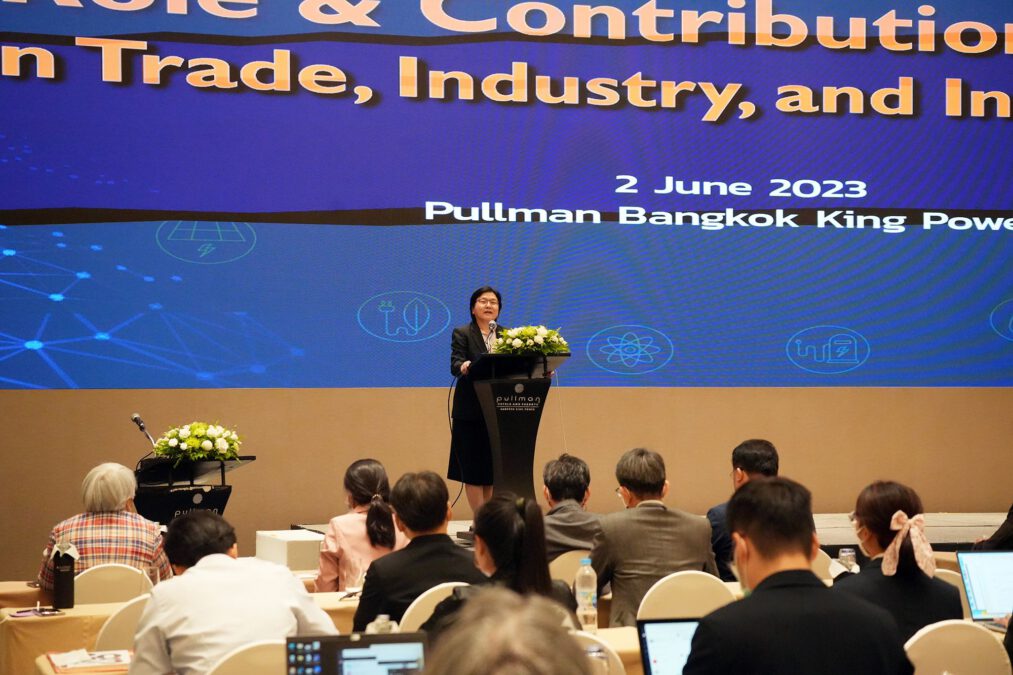
Assoc. Prof. Dr. Siri Chaiseri, the director of the Program Management Unit for Competitiveness (PMUC), mentioned that the purpose of the PMUC Special Talk is to promote a clear understanding of quality infrastructure, which is essential for economic development and trade competitiveness. Thailand already has this infrastructure in place and has been using it for a while, although it might be called by other names, such as the standardization system. It is necessary to ensure a clearer mutual understanding because Thailand aims to become a developed country in line with national strategies and the expectations of the PMUC.
Thailand is undergoing a transformation of its economic and industrial systems towards an innovative and technology-based industry where we own technology and brand products. The quality infrastructure, which is being newly built, differs from the old one in terms of the working methods, the order of work, responsibilities, and objectives of each component. The structure of the quality infrastructure, which promotes and supports the new economic and industrial system we are building, is equally important.
We need to move from an NQI where legal requirements are leading the way or serving as the main condition for entering the market to an NQI where private entrepreneurs and innovators take the lead. Thai products are not facing significant barriers to entering the market because they meet the minimum standards required by law. However, it is essential to compete in the market based on quality, as buyers have a choice. We have seen this phenomenon in our market, where consumers are willing to pay for products they believe are better than what they already have. As a result, products from South Korea, Japan, and Germany have gained an increasing presence in our market, while Thai products, which can compete in this group, are limited.
In conclusion, the talk on “Utilising Thailand NQI Strengths” features insights from Thai NQI experts who come together to push for changes and transform the NQI system into a new one that will promote the development of Thailand’s innovative economic base in the future.

